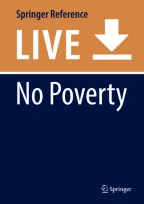
Basic services are the provision of fundamental needs such as water, food, electricity and energy, shelter, sanitation and health, and education to improve people’s live. Access to basic services becomes limited when there is high unemployment, poverty, and less awareness among people.
Poverty and well-being are reflected by the lack of fulfillment of basic facilities like education, health, water, and energy supply. In the developing world, poverty exists in both urban and rural areas because of inadequate services. The basic needs were focus of a World Bank Publication in the late 1970s in the book “First Things First Meeting Basic Human Needs In The Developing Countries” by Streeten et al. (1981). The primary components such as education, health and sanitation, nutrition, and employment opportunity for the poor were included in the book. This basic need approach was to give importance to the poor for their.